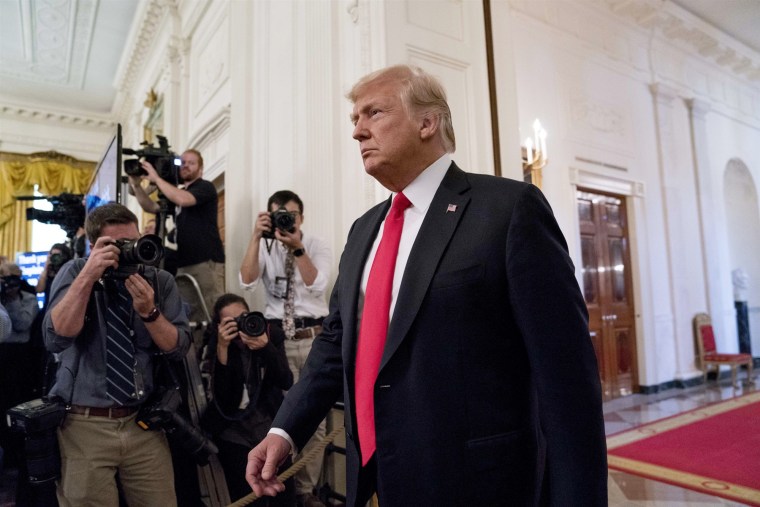The latest reporting from the New York Times on Donald Trump's finances is absolutely brutal. Based on exhaustive research, the newspaper uncovered evidence of "dubious tax schemes" and "outright fraud" that Trump exploited to receive hundreds of millions of dollars from his father.
The findings paint a picture in which the president, far from the self-made man he pretends to be, relied heavily on illegal handouts. At the heart of the story is the prospect of criminal fraud, criminal tax evasion, and money laundering, which the American president exploited to fuel his rise to power.
Given that the Times' reporting effectively made Trump look like a criminal, I was eager to see the White House's response. Last night, Press Secretary Sarah Huckabee Sanders issued a written statement condemning "the failing New York Times" -- these folks do strive for message consistency -- for publishing a "misleading attack." Her statement didn't point to any factual errors, though, Sanders quickly changed the subject to the nation's low unemployment rate.
This morning, the president himself weighed in via Twitter.
"The Failing New York Times did something I have never seen done before. They used the concept of 'time value of money' in doing a very old, boring and often told hit piece on me."Added up, this means that 97% of their stories on me are bad. Never recovered from bad election call!"
The time value of money is really just the idea that the value of an amount now is higher than the value of the same amount later. In other words, if someone offered to pay you $10 to complete a task, it's worth more to you to have that money immediately as opposed to several years from now. In fact, if that person offered to pay you for the task down the road, you'd ask for more than $10, even if that was the agreed upon price.
The Center for America Progress' Seth Hanlon, a veteran of the Obama White House, added this morning that the IRS "uses the 'time value of money' concept and charges compounding interest on unpaid taxes."
Politico's report noted, "[I]t's not clear why Trump fixated on that idea."
My thought exactly. The paper of record just published an indictment of sorts that characterizes the nation's president as a fraud and a cheat. In response, Trump is puzzled that the newspaper relied to the "time value of money" to make its case? That's the response?
Meanwhile, NBC News reported this morning that the New York State Department of Taxation and Finance is reviewing the allegations raised in the New York Times' reporting.
"The tax department is reviewing the allegations in the NYT article and is vigorously pursuing all appropriate avenues of investigation," James Gazzale, a spokesman for the New York State Department of Taxation and Finance, said in an email to NBC News.
